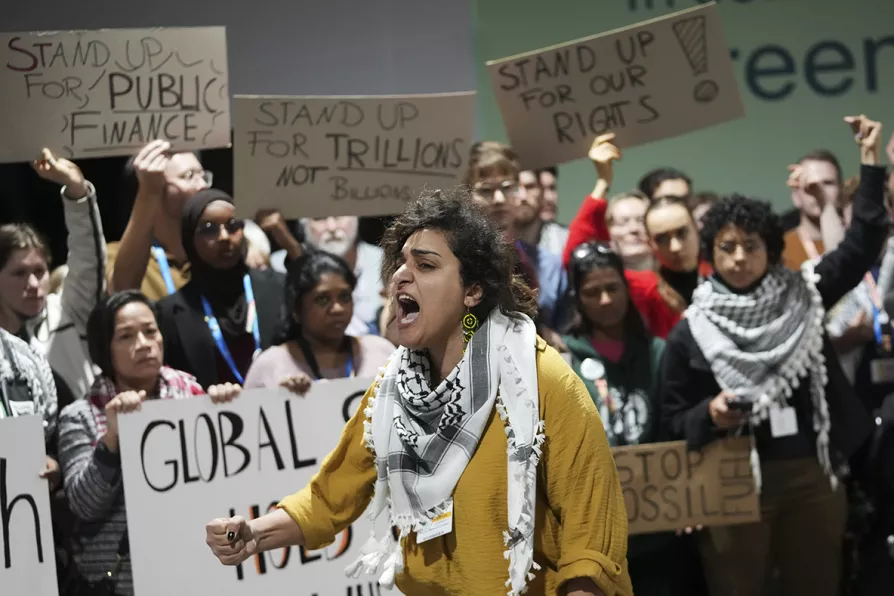
 Activists participate in a demonstration for climate finance at the Cop29 UN Climate Summit, November 23, 2024, in Baku, Azerbaijan
Activists participate in a demonstration for climate finance at the Cop29 UN Climate Summit, November 23, 2024, in Baku, Azerbaijan
DEVELOPING nations slammed the deal reached at the United Nations climate talks (Cop29) today, which pledged at least $300 billion (around £239bn) a year to help them cope with the ravages of global warming.
The money will go to developing countries to help them manage the transition from coal, oil and gas, adapt to future warming and pay for the damage caused by increasingly extreme weather.
Though three times the $100bn (nearly £80bn) a year agreed in a deal due to expire from 2009, it is nowhere near the $1.3 trillion (just over a £1trn) that developing countries were asking for.

From summit to summit, imperialist companies and governments cut, delay or water down their commitments, warn the Communist Parties of Britain, France, Portugal and Spain and the Workers Party of Belgium in a joint statement on Cop30













